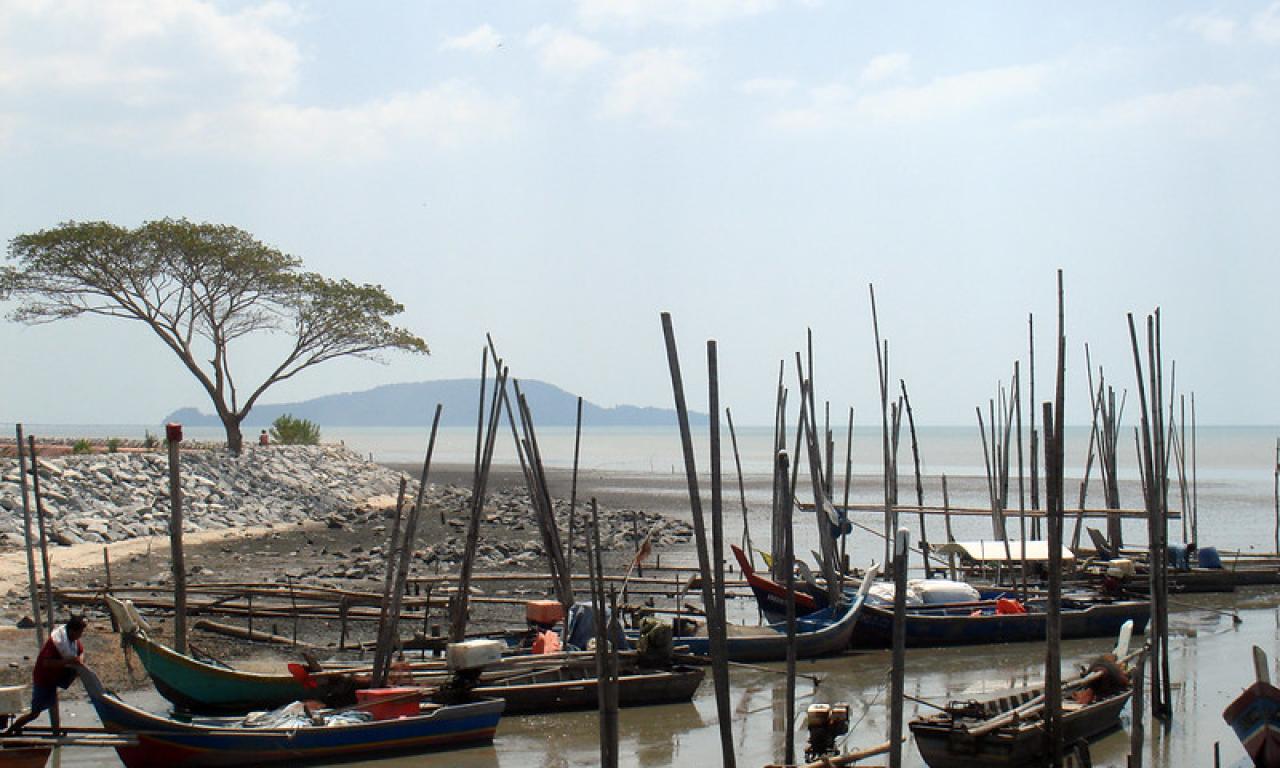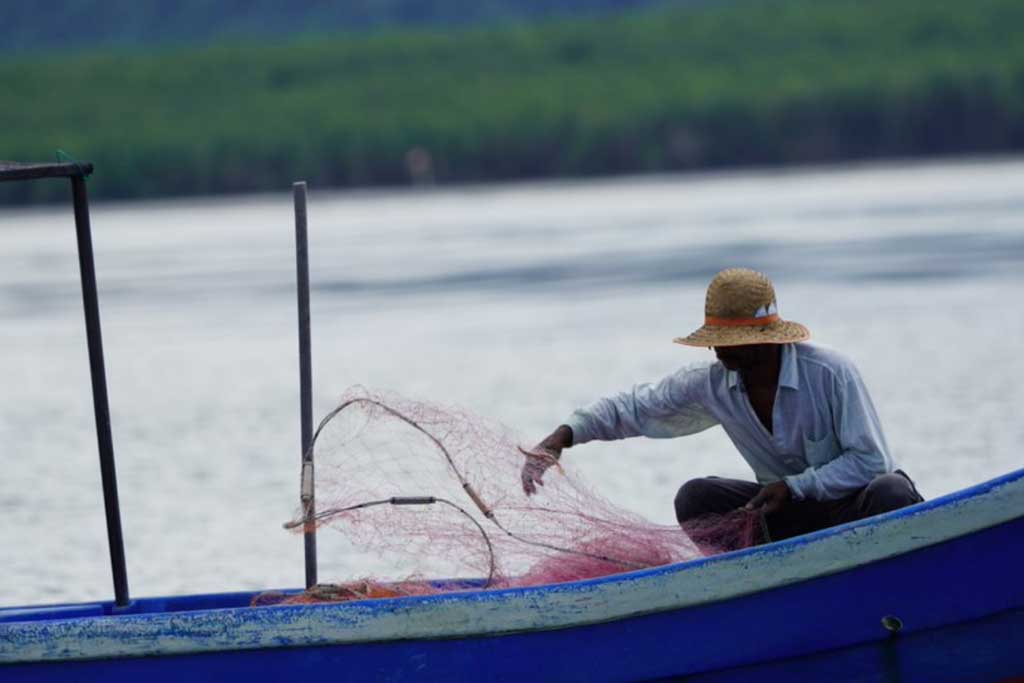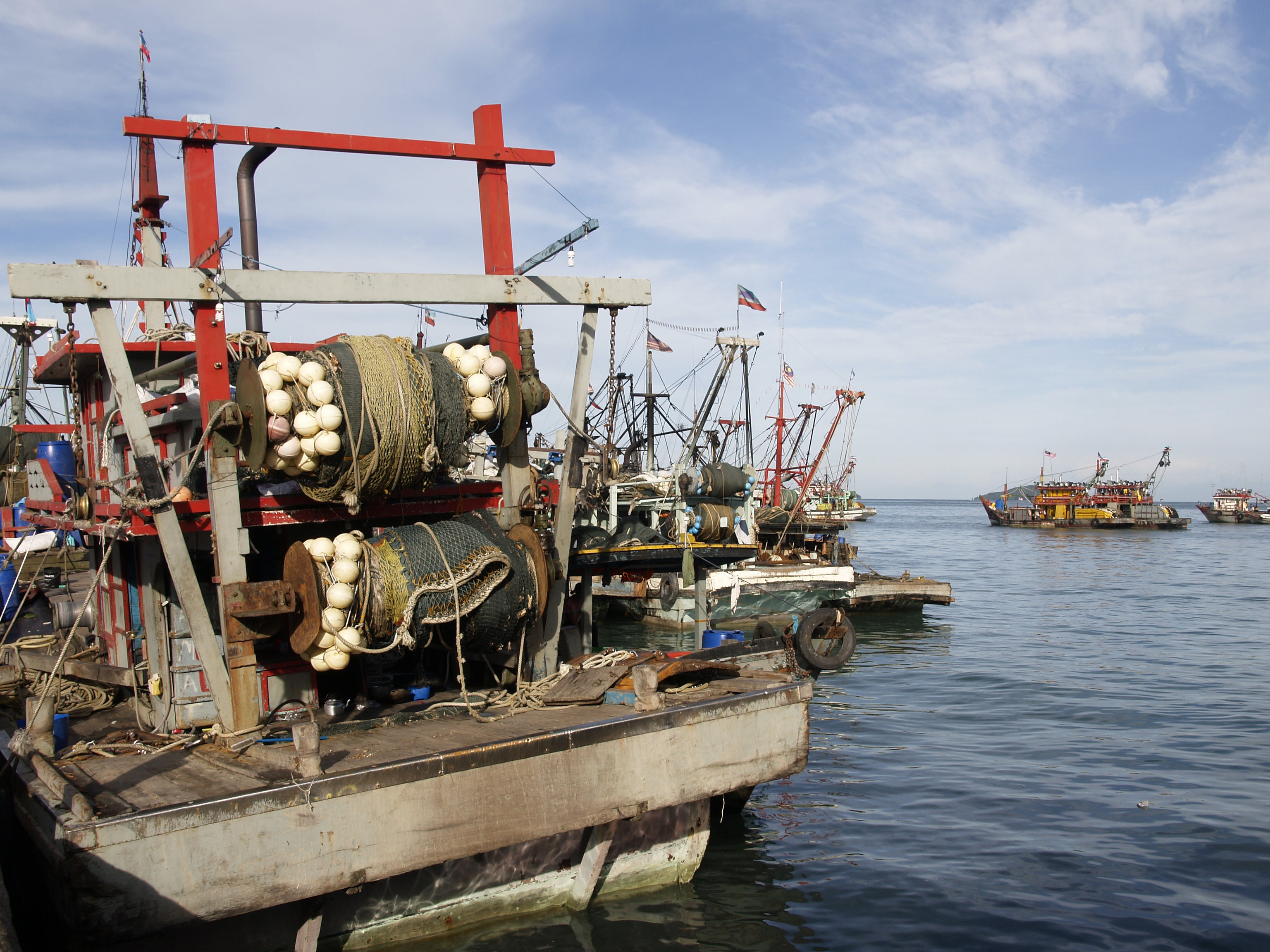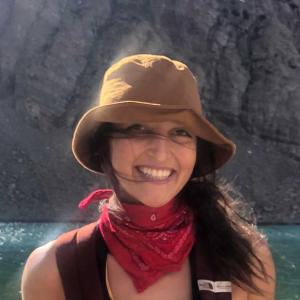
- Bottom trawling, a controversial fishing method that involves dragging a weighted net along the seafloor, is a highly destructive fish method that poses a significant threat to the livelihoods, cultural practices and well-being of small-scale fishers.
- WorldFish has teamed up with Movilizatorio, a citizen engagement and social innovation lab, to work directly with key spokespeople from communities and fisheries groups affected by bottom trawling encroachment into coastal areas.
- Training and mentoring sessions will be offered to small-scale fisher representatives and spokespersons to teach simple ways to engage the public and to build campaigns and social movements to drive policy change.
Coastal small-scale fisheries provide food, nutrition and a way of life for millions of women and men worldwide. However, as competition for aquatic resources intensifies, small-scale fishers face substantial challenges in being heard and maintaining their way of life and access rights to ocean space. In response, many nations have created exclusive coastal zones for small-scale fishers that prohibit access and fishing by industrial and semi-industrial vessels.
Yet, not all countries have established these zones and where they have been, often they are ineffective due to limited, or lack of, enforcement. Industrial vessels frequently encroach into coastal areas that are fished and occupied by small-scale fisheries.
Bottom trawling, a controversial fishing method that involves dragging a weighted net along the seafloor, provides more than a quarter of the total global marine catch and occurs almost exclusively on the continental shelf of coastal countries. However, it is a highly destructive fishing method that damages seafloor habitats supporting coastal fish populations, posing a significant threat to the livelihoods, cultural practices and well-being of small-scale fishers.
Identifying local champions in each region

WorldFish has teamed up with Movilizatorio, a citizen engagement and social innovation lab, to work directly with key spokespeople from communities and fisheries groups affected by bottom trawling encroachment into coastal areas. This team is leading the development and distribution of a set of strategic communication resources that will help strengthen collaboration and capacities between local small-scale fisheries groups, researchers, advocates and policy actors.
Four areas are in focus: Tribuga, Colombia; Penang, Malaysia; Lagos, Nigeria; and CAOPA, as an African regional organization. In each region, the way that small-scale fishers interact and cooperate with one another is different, as well as their level of experience in engaging with the public and policymakers.
CAOPA is active at local, national and international levels, lobbying for small-scale fishers in Africa. In Penang, Malaysia, there are government-structured and NGO supported associations, while in Nigeria, formal fisher groups exist but appear to lack the organizational capacity to engage in advocacy and in Colombia, there are community fisher associations – some of which have joined larger networks – focused on improving sustainable small-scale fisheries building direct supply chains with urban restaurants. .
Across all areas in focus, there is a desire for governments to recognize and act to curtail illegal bottom trawling in coastal zones and regulate areas reserved for small-scale fishers.
Equipping small-scale actors with tools to drive policy change

Spokespersons from these groups and other representatives from these fisheries will attend training and mentoring sessions conducted by WorldFish and Movilizatorio. They will be provided with contextualized communication toolkits and social media templates and taught simple ways to engage the public, to build campaigns and social movements to drive policy change. Through training and mentorship, fishers will have new opportunities for agency over their lives to drive for a sustainable future.
Raising and supporting the voices of small-scale fishers is critical and particularly relevant considering the current global attention on oceans and fisheries through the International Year of Artisanal Fisheries and Aquaculture 2022 and the UN Decade on Ocean Science (2021–2030).

